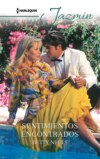Читать книгу: «A Girl in a Million»
A dynamic consultant…and a student nurse?
“I’m not aware that I am restricted in my actions by anyone or anything.” Arrogant, rich and devastatingly attractive, Marius van Houben was the sort of man who was used to getting his own way.
He certainly wasn’t prepared for Caroline’s plainspoken, commonsense approach. After all, as a student nurse, both qualities were an asset…if only Marius thought the same!
It had been a perfect day!
As though Caroline had voiced the thought out loud, Mr. van Houben said, “I should have liked to take you out to dinner, but I have several appointments this evening.”
“You have given me more than enough of your time.” Her gray eyes, with their incredible lashes, stared up into his face. “I’m most grateful.”
“Good night, Caroline.”
“Goodbye, Mr. van Houben.”
It really was goodbye this time. He drove away, and Caroline went into the house, wanting to be alone. She had discovered something, and she was trembling with the discovery. She had just said goodbye to the man she loved.
About the Author
Romance readers around the world were sad to note the passing of BETTY NEELS in June 2001. Her career spanned thirty years, and she continued to write into her ninetieth year. To her millions of fans, Betty epitomized the romance writer, and yet she began writing almost by accident. She had retired from nursing, but her inquiring mind still sought stimulation. Her new career was born when she heard a lady in her local library bemoaning the lack of good romance novels. Betty’s first book, Sister Peters in Amsterdam, was published in 1969, and she eventually completed 134 books. Her novels offer a reassuring warmth that was very much a part of her own personality, and her spirit and genuine talent live on in all her stories.
A Girl in a Million
Betty Neels

MILLS & BOON
Before you start reading, why not sign up?
Thank you for downloading this Mills & Boon book. If you want to hear about exclusive discounts, special offers and competitions, sign up to our email newsletter today!
Or simply visit
Mills & Boon emails are completely free to receive and you can unsubscribe at any time via the link in any email we send you.
Contents
Chapter One
Chapter Two
Chapter Three
Chapter Four
Chapter Five
Chapter Six
Chapter Seven
Chapter Eight
Chapter Nine
CHAPTER ONE
THE thin spring sunshine had little warmth and the pale blue sky looked cold, but together they turned the row of old gabled houses into a charming picture. They faced a narrow canal, tree-lined, the water dark, the arched bridge at its end leading to a street busy with traffic.
The girl walking along the narrow pavement paused to look about her and then, studying the street plan she was carrying, hitched the small package she held under one arm and crossed the narrow street to stand under the budding trees and study the houses opposite.
They were impressive, two and three storeys high with small windows in their various gables, heavy front doors with fanlights above them and with a double flight of steps leading to the door. Some of them had numbers on their walls; one or two had a coat-of-arms carved in stone above the fanlight.
Satisfied, she crossed the street again and mounted the steps of a tall house with high wide windows on each side of its door and an impressive gable, and thumped at the heavy knocker.
The man who opened the door was old, very thin and very upright with a fringe of white hair and pale blue eyes. He was dressed neatly in a black alpaca jacket and striped trousers and he addressed her in civil tones but, unfortunately, in Dutch.
She held out the packet she had been carrying. ‘I’m sorry, I don’t understand Dutch. This is for Mr van Houben, from Corinna.’
The elderly face slowly wrinkled into a smile. ‘I will see that he receives it, miss. Do you wish to give your name?’
‘No—no, thank you. Corinna asked me to deliver it here since I was coming to Amsterdam.’ She smiled nicely. ‘How very well you speak English.’
He gave a grave inclination of the head. ‘Thank you, miss.’
‘Well, goodbye.’ She smiled again and went down the steps. She ran down on to the bottom one as a dark blue Bentley drew up. She turned her head to look at it, took a step which wasn’t there, and fell in an untidy heap on to the pavement.
She wasn’t hurt, she assured herself, and then said so to the enormous man crouching beside her. ‘So silly of me,’ she added politely.
He took no notice of that. ‘Arms and legs all right?’ he asked, and it seemed perfectly natural that his English should be as good as her own. ‘You have a graze on your arm—any pains anywhere?’
When she said no, he heaved her gently to her feet, dusted her down and urged her back up the steps.
‘I’ve just been there,’ she told him. ‘There’s no need to bother anyone—I’m quite all right…!’
He had bright blue eyes in a handsome face dominated by a powerful nose. He studied her now, standing on the step by the door. ‘You need a wash and your hair could do with a comb.’ His voice was impersonal but kind.
The colour came into her face, made pale by the shock of falling. A pretty girl, she reflected bitterly, could get away with that, but she couldn’t, she hadn’t the looks—a small tip-tilted nose, a wide, generous mouth and a great deal of light brown hair didn’t amount to much, although her eyes were beautiful; grey, thickly fringed. She held her tongue and allowed herself to be ushered back up the steps and into the house.
The hall was impressive and so typical of the Dutch Interior paintings she had been at pains to study at the Rijksmuseum that for a moment she wondered if this house was a museum too. Apparently not. She listened without understanding while there was an exchange of Dutch over her head and the elderly man went away, to return in a moment with a middle-aged woman with a formidable bosom and a kind face who clucked over her in a kindly fashion and led her away to the back of the hall and into a cloakroom secreted behind the dark panelling, the very antithesis of the hall: comfort—no, luxury with its elegant fittings, thickly carpeted floor and mirrored walls and a shelf full of just about everything needed to improve one’s appearance. The girl washed her face and hands and the quite nasty graze on her arm and, since there was no help for it, took the pins out of her hair and combed it with one of the ivory combs on the shelf, and pinned it neatly again. A little lipstick and powder would have been nice, but she didn’t like to use any of these, arranged so beguilingly on the shelf.
She looked awful, she decided, and went back into the hall, to the stout woman who led her into a room on the other side of the splendid staircase.
There was another unintelligible exchange of Dutch before she was asked to sit down.
‘I’ll take a look at that graze,’ said her host, and, having done so, went and rummaged in a black bag on the enormous desk under the window, to return with gauze and strapping and a tube of something.
‘A soothing ointment,’ he explained, and added, ‘Keep it covered for a couple of days.’ When he had finished he asked, ‘You know Corinna?! Fram tells me that the parcel you were kind enough to bring is from her.’
The graze felt much better but she was aware of several sore spots on other parts of her person. ‘Yes, I know her…’
‘You are a nurse too?’
‘I’m not trained yet. Corinna has almost finished, but we’ve been working on the same ward.’
‘Will you tell her that I’m delighted to have the book?’ He had gone to sit behind his desk. ‘I had better introduce myself—Marius van Houben.’
She said gravely, ‘How do you do? I’m Caroline Frisby. Thank you for your kindness and you saw to my graze quite expertly; lots of people have no idea what to do even for the simplest cut.’
‘One does one’s best,’ murmured her host. ‘May I offer you a cup of coffee?’
She got to her feet. ‘No, thank you, I must get back: there’s a tour of the city this afternoon and I should like to go on it.’
He went to open the door and Fram was waiting in the hall. She shook hands, thanked the butler for opening the door, and went carefully down the steps and walked briskly away, very aware of the tender spots on her small, too thin person.
It was quite a long way back to the hotel, but she had plenty of time. Aunt Meg had intended to do some shopping and had arranged to meet her at noon, when the hotel would provide them with coffee and sandwiches. It was a small hotel squashed into a narrow street near the Amstel River, very clean, the bedrooms small but the beds comfortable, serving a breakfast of rolls and cheese and jam and coffee each morning, coffee and sandwiches again if needed at midday and a substantial meal at night to its guests, who were for the most part quiet middle-aged couples with not much money to spend, content to roam the streets of the city, explore the museums and churches and gaze into shop windows. Caroline had come with her aunt because that lady hadn’t liked the idea of going alone although she was determined to explore Amsterdam, a city she had always wished to visit. Caroline, with two weeks’ holiday due, had willingly agreed to go with her; Aunt Meg had given her a home when her parents had died within a few weeks of each other of a particularly virulent flu. Not only had she done that, she had made her welcome, treated her as a daughter, strained her resources to have her educated and, when Caroline had decided that she would like to be a nurse, had encouraged her to leave the small house at Basing, a small village to the east of Basingstoke, and enrol at one of the London teaching hospitals. She had been there almost eighteen months now, and although she still missed the quiet life of the village it wasn’t too far for her to go back there twice a month.
Her aunt was waiting for her, a comfortable matronly figure, sensibly clad in various shades of brown.
‘Well?’ she wanted to know. ‘Did you find the house?’
‘Yes, Aunt. It was one of those patrician town houses beside one of the small canals branching off from the Herengracht.’
‘Who answered the door?’
‘I suppose he was a butler. He was very polite and he spoke English.’ She paused. ‘I fell down the steps as I left. The cousin of Corinna’s who was to have the package picked me up and put something on a graze…’
‘Did you like him?’ Aunt Meg never beat about the bush.
‘Well, he seemed very nice—kind, you know, and lovely manners. I felt a fool.’
‘One always does. Never mind, dear, you’re not likely to meet him again. Let us go and eat our sandwiches; I’m looking forward to this tour.’
The coach, with its guide, took them around the city: the Oude Kerk, the Nieuwe Kerk, the Koninklijk Paleis, a bewildering succession of museums, Anne Frankhuis and, finally, the Rijksmuseum. Caroline, a sensible girl, aware that she might never get the chance to see Amsterdam again, listened and looked and stored away a multitude of odd sights and sounds to think about later, and in between whiles she thought about Corinna’s cousin. He had looked like a man of leisure and he lived in a splendid house; probably he did nothing much—sat on a few committees perhaps, lent his name to boards of directors. She didn’t know Corinna well enough to ask. It was only by chance that Corinna had got to hear that she was going to Amsterdam and had asked her to take the package and deliver it. ‘It’s only books,’ she had said, ‘but they cost the earth to post and they might get lost…’
There was a trip to Alkmaar on the following day but her Aunt Meg hadn’t had her fill of Amsterdam yet. She spent the day wandering up and down the narrow lanes and streets and Caroline, nothing loath, went with her. They got lost several times but that, as her aunt pointed out, was half the fun. It was a pity that their wanderings took them nowhere near the Herengracht; Caroline, keeping her eyes open for a dark blue Bentley, saw no sign of it.
It was a good thing, she told herself firmly, that they would be going back home on the following day.
Their return home was made on a drab and chilly day, a remnant of winter. From the coach windows Holland looked flat and dull and very wet, but England looked dull too, even if not as flat, as they sped Londonwards from the ferry. Caroline had two more days’ holiday before she had to return to hospital, so once they reached Victoria and wished their fellow passengers goodbye she and Aunt Meg were able to take themselves off to catch the next train to Basingstoke and from there get a taxi for the two miles to Basing.
Aunt Meg had shopped prudently in Amsterdam, with forethought, and while Caroline lit the fire in the sitting-room and carried their cases upstairs to the two small bedrooms her aunt opened a Dutch can of soup, warmed rolls in the oven and made a pot of tea.
Tea made, they ate at the kitchen table since it was already evening and the journey had been tiring. ‘Not that the coach wasn’t comfortable,’ observed Aunt Meg, ‘and everyone in it very pleasant, but it’s not the same as going on your own, is it?’ She smiled across the table at Caroline. ‘We could have done with that Bentley car you were telling me about—now that’s the way to travel.’
Caroline, spooning the thick Dutch soup, agreed. The memory of Marius van Houben was still vivid; it was also a waste of time. ‘We’ll unpack in the morning,’ she told her aunt. ‘There’ll be time to get the washing and ironing done before I go back.’
She was up early to make tea, load the washing machine and then go into the garden to take a look around her. Another week or so and it would be April; her aunt’s flower-beds were bursting with green shoots and the rhubarb was coming along nicely under its bucket. It was a bit early to go across the street and collect Theobald, Aunt Meg’s cat who had been boarded out while they were abroad, so she contented herself with poking around the seedlings in the tiny greenhouse before going back indoors and setting the table for their breakfast.
The meal over, she filled the washing-line at the end of the garden and went across to Mrs Parkin’s for Theobald. The sun had come out now, and the village, so peaceful and quiet despite its nearness to Basingstoke, looked delightful. She paused to admire the small houses and cottages around her before thumping on Mrs Parkin’s door knocker.
Theobald, an elderly tabby with a torn ear and handsome whiskers, was pleased to see her. ‘Good as gold,’ avowed Mrs Parkin. ‘Got ’is wits about ’im, ’e ’as. ’As you ’ad a nice time in foreign parts?’
‘Lovely, thank you, Mrs Parkin. Aunt Meg will be over to see you presently and she will tell you all about it.’
Caroline bore the cat back to his own home, pegged out the rest of the washing and, with her aunt having a chat over the coffee-cups with Mrs Parkin, took herself off to the village stores. There were several customers there, all of whom she knew, and all of whom wanted to know if the holiday had been a success.
‘Historically a most interesting city,’ observed the vicar’s wife, who prided herself on being cultured. ‘Of course you visited all the museums and art galleries?’
‘Well, as many as we could cram in,’ said Caroline, ‘and we walked around, just looking, you know—some of the houses are very beautiful…’
‘Now, you can’t beat an Italian villa,’ chimed in Miss Coates, who lived alone in a large house at the end of the village and went to Italy each spring, and enlarged upon the subject until she had been served with half a pound of butter, a tin of sardines, and half a dozen stamps from the Post Office end of the shop.
When she had gone Mrs Reece, who owned the shop said, ‘Now she’s gone, do tell us, Caroline, did you meet anyone nice?’
Everyone there knew that she meant a young man. ‘Well, no, the other people on the trip were middle-aged couples, and two schoolteachers…’
‘You must have met a lot of people—in the street, I mean,’ persisted Mrs Reece, who had a fondness for Caroline and would have liked to see her married.
‘I did meet one person—I had to deliver a parcel…’ Caroline related her visit to the magnificent house by the canal and her tumble. ‘I felt a fool,’ she ended, ‘and I ruined a pair of tights.’
‘Was he very handsome?’ asked Mrs Reece.
‘Oh, yes, very—and tall and big.’
‘“Ships that pass in the night”,’ the vicar’s wife quoted, ‘One so often meets a person one would wish to know better if one had the opportunity.’ She handed Mrs Reece a list of groceries, ‘I remember when we were in Vienna…’
Caroline was the last customer. ‘Well, dearie, I’m glad you enjoyed yourself, though it’s a shame that there weren’t any young folk around.’
Never mind the young folk, reflected Caroline, inspecting the cheeses, Mr Marius van Houben would do very nicely.
That day and the next went all too quickly. She took a late afternoon bus to Basingstoke and got on the train, hanging out of the window until the last minute, waving to Aunt Meg. She would be back again in two weeks’ time for her days off but at the moment she derived little comfort from that. She hated going back and yet once she was there, in the hospital, busy on the ward, she was happy.
The nurses’ home, a grim appendage to the hospital, looked bleak from the outside, but inside it was cheerful enough, and although the rooms were decidedly small they were nicely furnished and there were three sitting-rooms, one for the sisters, one for trained staff and one for the student nurses. Caroline poked her nose round the door of the last mentioned and was greeted by several girls lounging around reading and drinking tea.
They begged her to put her case down and tell them all about her holiday while she drank a mug of tea, unpacked the cake her aunt had made for her and handed it round.
‘Meet any nice men?’ asked one of the girls, Janey, a pretty fair-haired girl.
‘No—at least, I did meet one, I’m not sure if he was nice…’
She had everyone’s attention. ‘Do tell…’
She told and when she had finished Janey exclaimed. ‘You could have fainted or burst into tears, you know—captured his attention.’ She sighed. ‘Really, Caro—for a woman of twenty-four you’re hopeless at catching the male eye!’
‘I didn’t feel faint, and you know how hideous I look if I cry.’
There was a protesting chorus telling her that she hadn’t needed to feel faint; just to look pale and helpless would have done very well.
Caroline said meekly that she would know what to do next time, with the secret thought that being pale and helpless would cut no ice with a man like Mr van Houben. His eyes, compellingly blue though they were, were razor-sharp.
She went on duty the next morning, back to Women’s Surgical, chock-a-block since it was take-in week, with beds down the centre of the ward and several disgruntled ladies forced to sleep in Women’s Medical where they had beds empty.
‘It’s a funny state of affairs,’ observed Staff Nurse James, deftly shortening a tube and putting on a fresh dressing while Caroline handed things and made cheerful remarks to the nervous patient. ‘Here’s us bursting at the seams, and two whole wards closed because there’s no money to keep them open. There, that’s done, Mrs Crisp, and I’m sure you’ll feel more comfortable now. Clear away, will you, Nurse, and then go and get your coffee?’
Corinna was in the canteen and as Caroline went in she called her over to the table where she was sitting. ‘Did you find the house?’ she wanted to know. ‘I hope it wasn’t too much of a nuisance for you? I’m very grateful—the book was far too precious to send by post—a first edition. Thanks awfully. Did you have a good time?’
‘Yes, delightful, thank you.’ Corinna, she thought, was very like her cousin; her eyes were bright blue too, although her nose was a delicate beak, which rather added to her good looks. If she had known Corinna better she might have told her that she had met her cousin; as it was, she went and got her coffee and sat down at another table with several of her friends.
She was tired by the time she went off duty at six o’clock; there had been two emergency admissions who had gone to Theatre during the day and one of the student nurses had gone off sick during the afternoon, which meant that two of them were doing the work of three.
Caroline kicked off her shoes, made a cheerful telephone call to Aunt Meg and curled up with a book in the sitting-room. Exercise in the fresh air was essential to a nurse’s well being, Sister Tutor had been telling decades of students that, but Caroline decided that her day had provided enough exercise, and anyway the air, laden with fumes from the never-ending traffic of the East End of London, wasn’t fresh. The book, she decided after ten minutes’ reading, was dull, so she closed it and allowed her thoughts to wander.
The holiday in Amsterdam had been a success; Aunt Meg had had a long-cherished dream fulfilled and they had seen as much as possible of the city. It would have been nice to go inside some of the magnificent houses they had inspected so avidly from the streets. It was a pity she hadn’t had the wit to do as Janey suggested; if she had fainted, or appeared to faint, she would have had to spend much more time inside Mr van Houben’s house and had a chance to look around. As it was she had barely glimpsed the hall before the brief session in his study while he dealt with the grazes. She would know better next time—only there wouldn’t be a next time. She and her aunt had saved for some time for their holiday; there wouldn’t be one next year, and if there was enough money for the year following that Aunt Meg would want to go somewhere else. When holidays were few and far between one couldn’t afford to go to the same place twice, not if one wanted to see as much of foreign parts as possible.
Impatient with herself for feeling discontented, she went away to wash her hair and by the time it was dry and fastened neatly once more it was time for supper. Afterwards, everyone lucky enough to be off duty crowded into the sitting-room to drink tea, talk shop and compare notes about their boyfriends. There was the usual hospital gossip too: who was going out with which house doctor, Mr Wilkins’ nasty fit of temper in Theatre that afternoon, Casualty Sister’s unjust treatment of one of their number who had had the misfortune to drop a pile full of sterile dishes… By the time she got to bed she had forgotten her discontent. Life, she thought sleepily, was really quite fun, and somewhere, some time, she would meet the man she would marry. He had until now been a nebulous figure, vague as to feature and voice, but now he bore a striking resemblance to Mr van Houben. ‘Which really won’t do at all,’ muttered Caroline as she closed her eyes.
Life was by no means fun the next day. Mr Wilkins’ morning round was far from smooth; he had come on to the ward in a bad temper to start with, which rendered the already nervous students even more nervous so that they were either struck dumb or gave all the wrong answers; moreover, several of the ladies lying in their beds dozing peacefully deeply resented being wakened so that he might examine them. Sister Cowie, who prided herself upon the perfection of her ward, pursed her lips and said very little; later several people would get the sharp edge of her tongue. Certainly her nurses would be held to blame for allowing the patients to drop off when Mr Wilkins’ round was imminent. Those who could kept prudently out of sight, but Staff Nurse and Corinna, following in Sister’s footsteps bearing charts, X-ray forms and all the impedimenta needed to keep Mr Wilkins happy, were very aware of her displeasure. Staff would get the blame, of course, which she would pass on to everyone else.
Two more patients and the round would be finished and Mr Wilkins and his registrar would drink coffee with Sister. He was approaching the last bed when he was nudged aside, his foot trodden on and urged to wait a moment. Caroline, bearing a bowl, reached the patient in the nick of time. An arm around the heaving shoulders, the bowl nicely in position, and sitting on the bed because it was easier, Caroline turned a cheerful face to Mr Wilkins. ‘So sorry if I hurt your foot, sir, but Mrs Clarke is always sick without warning—so awkward and horrid for her.’
Mr Wilkins gobbled wordlessly; he was a pompous man, short and stout and middle-aged. He was a splendid surgeon and the students held him in awe, something he rather enjoyed, and here was a dab of a girl actually pushing him aside, telling him to wait. The fact that if he hadn’t waited the consequences would have been unpleasant to himself cut no ice. He opened his mouth to administer a dignified rebuke, but Caroline spoke first. ‘There—Mrs Clarke is better now.’ She mopped the lady’s pallid brow and picked up the bowl. ‘I do hope,’ she added in a motherly voice, ‘that your foot isn’t painful, sir.’
She slipped away and Sister, Staff and Corinna, who had been holding their breath, let it out with a sigh of relief. Mr Wilkins looked around him but the various faces looking back at him seemed solemn. ‘We will now examine Mrs Clarke,’ he told them and embarked on a rather lengthy dissertation concerning that lady’s insides, very much to her discomfort.
Drinking his coffee presently, Mr Wilkins voiced his disapproval of Caroline’s conduct. ‘I have neither the time nor the inclination to speak to this nurse,’ he observed, ‘I rely upon you, Sister, to deal with her as you think fit. I intend to speak to the senior nursing officer, of course. I cannot have my authority undermined.’
Sister, a strict disciplinarian but always fair, spoke up. ‘Nurse acted with foresight, sir. If she hadn’t reached Mrs Clarke with the bowl you would have been—er…’ She paused delicately.
‘She pushed me,’ said Mr Wilkins crossly, ‘and trod on my foot, and then had the impudence to hope that she hadn’t hurt me.’
His registrar said quite quietly, ‘It was either that or vomit all over your suit, sir. I agree with Sister—Nurse acted promptly in the best interests of both you and your patient.’ He added, ‘It would be most unjust to blame her for what she obviously saw as her duty.’
Mr Wilkins had gone red. ‘Since I am to be outnumbered I shall overlook the matter, but rest assured that I shall make it my business to keep a strict eye on the girl. What is her name?’
‘Nurse Frisby. She has just entered her second year. She is a promising student.’
Mr Wilkins said, ‘Pish,’ and went away, his registrar, poker-faced, with him. He didn’t like his chief overmuch, and he was glad that Caroline had escaped his bad temper. He grinned at the thought of the medical students recounting the episode to their fellows. Most of them had suffered at some time from Mr Wilkins’ ill humour and would relish a good laugh at his expense.
All the same, something would have to be done about it, Sister decided, and took herself off to the office to see her superior.
Two days later, before Mr Wilkins’ next ward round, Caroline was transferred to the children’s ward.
It was a happy choice made by her two superiors. The paediatric unit was housed at the back of the hospital, a modern wing built on to the ponderous Victorian main hospital. It was presided over by an elderly woman, Sister Crump, reputedly as mad as a hatter but none the less a miracle-worker when it came to getting her little patients well again and, what was more important, keeping them happy in the process.
After the strict regime of Women’s Surgical, Caroline found it very much to her liking. Here there were no orderly rows of cots; they were wheeled here, there and everywhere according to Sister Crump’s mood, and down the centre of the long ward there were low tables cluttered up with toys, teddy bears and picture books and the children who were well enough were allowed to scamper around within reason. On first sight it appeared to be a madhouse, but there was order too, and if a nurse couldn’t fit into Sister Crump’s way of working she was moved to another ward, for she demanded meticulous care of the children in her charge. Dressings were done, little patients got ready for Theatre, temperatures taken, medicines given to the strains of cheerful music. Since the children, unless they were very ill, shouted and screamed a good deal, the nurses had to lift their voices above the din. There was discipline too: the children addressed all the nurses as Nurse—Christian names, according to Sister Crump, carried no authority with them, and authority, gentle though it might be, was needed at all times.
Sister Crump had liked Caroline at once; nothing to look at, as she observed to Staff Nurse Neville later, but from all accounts she had acted with commendable promptness on the surgical ward even if she had upset Mr Wilkins’ sense of importance. ‘A fuss about nothing,’ she declared, and sailed into the ward, to clap her hands and tell the children to shout more softly. At the same time she observed that Caroline was sitting on the edge of a small bed, holding a little wriggling girl on her lap while a senior nurse dressed the wound, beautifully stitched, on the small arm.
There were side-wards leading from the main wards where the very ill children lay. It was quiet here, the rooms with glass walls, equipped with all the paraphernalia necessary for urgent treatment and nurses constantly going from one child to the other. In a few days, Staff Nurse had told Caroline, when she had got to know the ward thoroughly, she would take her turn too with the other nurses, looking after one or two children, giving them the specialised treatment they had been ordered. Caroline looked at the array of monitoring screens, tubes and drips and hoped that she would know what to do. Of course, Sister Tutor had explained it all, but applying theory to practice demanded the keeping of one’s wits about one.
Бесплатный фрагмент закончился.
Начислим
+13
Покупайте книги и получайте бонусы в Литрес, Читай-городе и Буквоеде.
Участвовать в бонусной программе



























